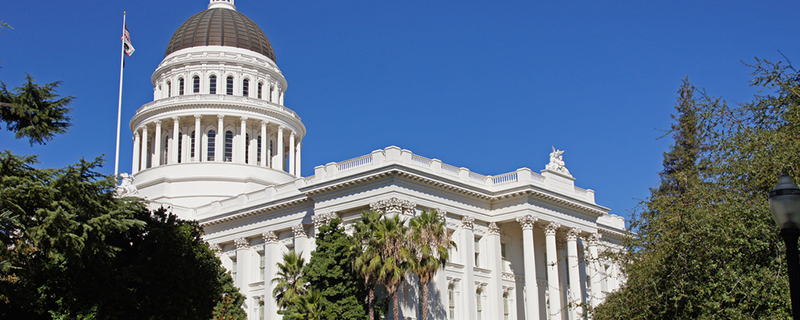Shortly after the New Year’s holiday, Gov. Gavin Newsom will kick off “state budget season” when he releases his 2022-23 state budget proposal on January 10.
In a sign that perhaps lawmakers won’t be ceding as much of the spotlight to Newsom in 2022 that they have in 2021, Democratic leaders in the State Senate last week jumped the gun on the Newsom budget by releasing “a broad overview . . . of the key values Senate Democrats will be using to craft the Senate Budget Plan for the upcoming year.”
Senate Democrats are laying down their marker early for how they want to spend what the nonpartisan Legislative Analyst’s office estimates will be a $31 billion budget surplus to allocate in the 2022-23 fiscal year. This is in addition to at least $39.4 billion that will start rolling into California starting in 2022 from the federal infrastructure bill. And just last week, the Legislative Analyst’s office projected that based on strong cap-and-trade auction revenue, the state could expect $1.7 billion more than projected to spend.
Reading the Senate Democrat budget vision, you’ll find a standard “redistribution of wealth” approach to state spending. The introduction proclaims that, “as has been the case throughout the decade for nations, wealth has gone to the top leaving the middle class and struggling families behind.”
But because “California’s voter-approved revenue system results in those that have prospered the most contributing their share,” Senate Democrats aim to “craft a transformative budget that puts our wealth to work for a more equitable California.”
In reality, as documented in PRI’s recent “California Migrating” study, many California – upper-income and poor alike – feel like they are contributing more than their share. They’re voting with their feet by leaving the state. Our voter-approved revenue system and other policy mistakes have turned California’s 13.7 percent income premium versus the rest of the country turns into a 19.6 percent net income deficit when you factor in taxes and mortgage costs. That’s not a big incentive to attract the wealth we’ll need to fund future transformative budgets.
Among the Senate Democrat spending priorities are a lot of progressive buzzwords:
- “Maintaining existing expenditure priorities that promote equity”
- “Building a more equitable economy” through government-run health care and childcare programs
- “Balanc(ing) public safety and justice”
In a statement, Senate President Pro Tem Toni Atkins proclaimed that, “the Senate is committed to putting the state’s wealth to work to benefit those who need it most – the middle class and families struggling to get by.”
Yet poor and middle class Californians aren’t benefiting thanks to years of Sacrament policy mistakes. Consider the restrictions on Californians’ ability to work as they choose in the gig economy enacted in the controversial Assembly Bill 5, which PRI’s Kerry Jackson termed “anti-worker, anti-job, anti-entrepreneur, and anti-freedom.” PRI’s Wayne Winegarden has written that these “government-created barriers to opportunity are standing in the way of immigrants and low-income entrepreneurs launching a startup and accessing credit and capital to grow their business and hire more workers.”
Then there’s California’s government energy mandates, which have according to PRI’s “Legislating Energy Poverty” study, results in Californians paying the nation’s highest average state electricity prices, and among the nation’s highest gas taxes and gas prices. This disproportionately impacts families living in California’s poor, rural, minority, and inland communities.
Instead of figuring out how to spend today’s temporary spoils on their big government priorities, Atkins and her colleagues would be wise to put the same energy into lifting the costly government burdens and mandates that are hurting real Californians. Otherwise, today’s huge surplus could quickly turn into a hug deficit thanks to years of self-inflicted policy wounds.
Tim Anaya is the Pacific Research Institute’s senior director of communications and the Sacramento office.

